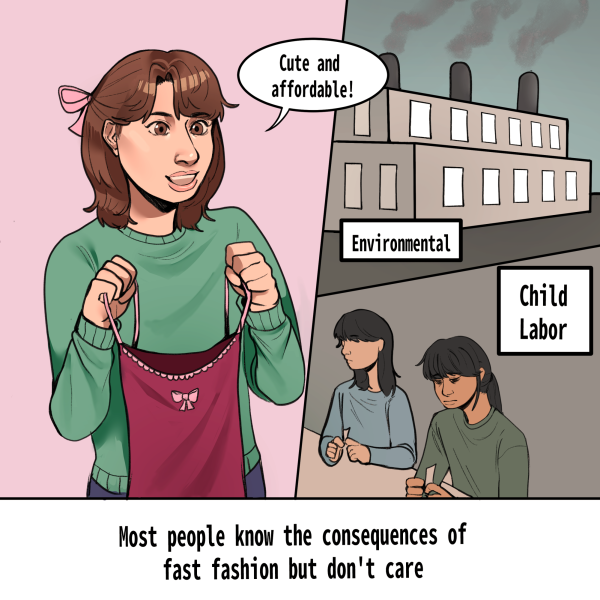A step in the right direction
Ketanji Brown Jackson: First Black woman on Supreme Court
Ketanji Brown Jackson is the first black woman to serve as a justice of the United States Supreme Court. Jackson’s adoption of the supreme court justice title is a significant achievement for people of color.
May 31, 2022
Jackson’s adoption of the supreme court justice title is a significant achievement for people of color, specifically the African American community. More importantly, this is an inspiring breakthrough for women of color considering the only other women of color who have high political positions were former first lady of the United States (U.S.) Michelle Obama and first female vice president of the U.S. Kamala Harris.
“It has taken 232 years and 115 prior appointments for a black woman to be selected to serve on
the Supreme Court of the United States (US). But we’ve made it,” Jackson said in a public speech. “We’ve made it. All of us, all of us. And our children are telling me that they see now more than ever that here in America, anything is possible.”
Lately the African American community has received an increasing amount of representation in different ways. Jackson is a major development in terms of representation as it is not often that an African American woman gains a high political position.
This is also a very historical moment for people of all communities, regardless of their background as Marketing and Communications writer for Facing History Kaitlin Smith explains. According to Smith, “…this event has emerged from a historical and contemporary context in which Black people, women of all races, and Black women, in particular, remain marginalized under the law”.
The Democracy Docket’s, “State Supreme Courts Don’t Match America’s Diversity”, states, “even though America is becoming increasingly diverse, state Supreme Courts don’t reflect this. Nationwide, only 17% of state Supreme Court justices identify as people of color, even though people of color make up nearly 40% of the population.”
When there is an open position on the Supreme Court, the current President nominates a candidate for said opening, allowing the U.S. Senate to come to a vote and confirm the candidate. This is the process that Jackson went through prior to her promotion from District Judge to Supreme Court Justice.
This promotion is well deserved, as Jackson has been working hard her whole life. According to the Committee on the Judiciary, “Judge Ketanji Brown Jackson is an exceptionally well-qualified jurist whose credentials, experience, and even-handed approach to the administration of justice make her an outstanding candidate for the Supreme Court.”
Prior to gaining her seat in the Supreme Court, Jackson served as a district judge for the U.S. district court of Columbia from 2013 until June of 2021. Jackson also briefly worked as Vice-Chair of the U.S. Commission from February 2010 into December 2014. Jackson’s credentials prove that she is deserving of her spot.
“I have dedicated my career to public service because I love this country and our Constitution and the rights that make us free,” Jackson said in comments at the White House following her confirmation.
Historically, white people have always been seen as the common politicians common politicians in society. With this in mind any good diverse change made in a high political position should be revered as such.
“We assume whiteness is the default because whiteness, historically, has been the default. This is one of the many reasons diverse representation matters so much. We need to change the default,” American writer Roxane Gay said on a website.
As inspiring as it may be to see a woman of color rise up to the position of Supreme Court Justice, some seem opposed to the idea as she may not be the best nominee in their eyes. Some believe that Jackson is unfair and impartial and as a Judge, is impractical.
“Ketanji Brown Jackson is the most radical judge ever nominated for a seat on the Supreme Court. A review of her record and judicial philosophy reveals a deeply troubling pattern and raises questions about her ability to be a fair and impartial judge,” President of Heritage—a website used to formulate and promote public policies—Kevin Roberts said.
Although some people have their views on why Jackson is a bad choice, she demonstrates why she is a good choice for a Supreme Court Justice. Jackson is a valuable member that has shown commitment toward her work and for a moment like this to come, it is important that people of all colors recognize the good more than the harm.
Jackson is a valuable member that has shown commitment toward her work and for a moment like this to come, it is important that people of all colors recognize the good more than the harm. — Jaylen Gladney
“She graduated from Harvard, both undergrad and law school. She clerked for a federal district court judge and then, in a nice bit of symmetry, nabbed a mega-prestigious clerkship with Justice Stephen Breyer, who she now stands to replace,” Executive Director of the Rutgers Institute for Secure Communities Elie Honig said in CNN’s article, “What kind of justice will Ketanji Brown Jackson be?”
According to a poll taken by Forbes Nearly all Democratic respondents (95%) would support her, along with 67% of Independents, while only 29% of Republicans favored her confirmation.
Overall, it is important for the people in America to recognize the Supreme Court Justice that can identify with them and be an advocate that represents them. Ultimately, for Jackson to become the first woman of color in the Supreme Court Justice is a historical moment that will go down in history.













